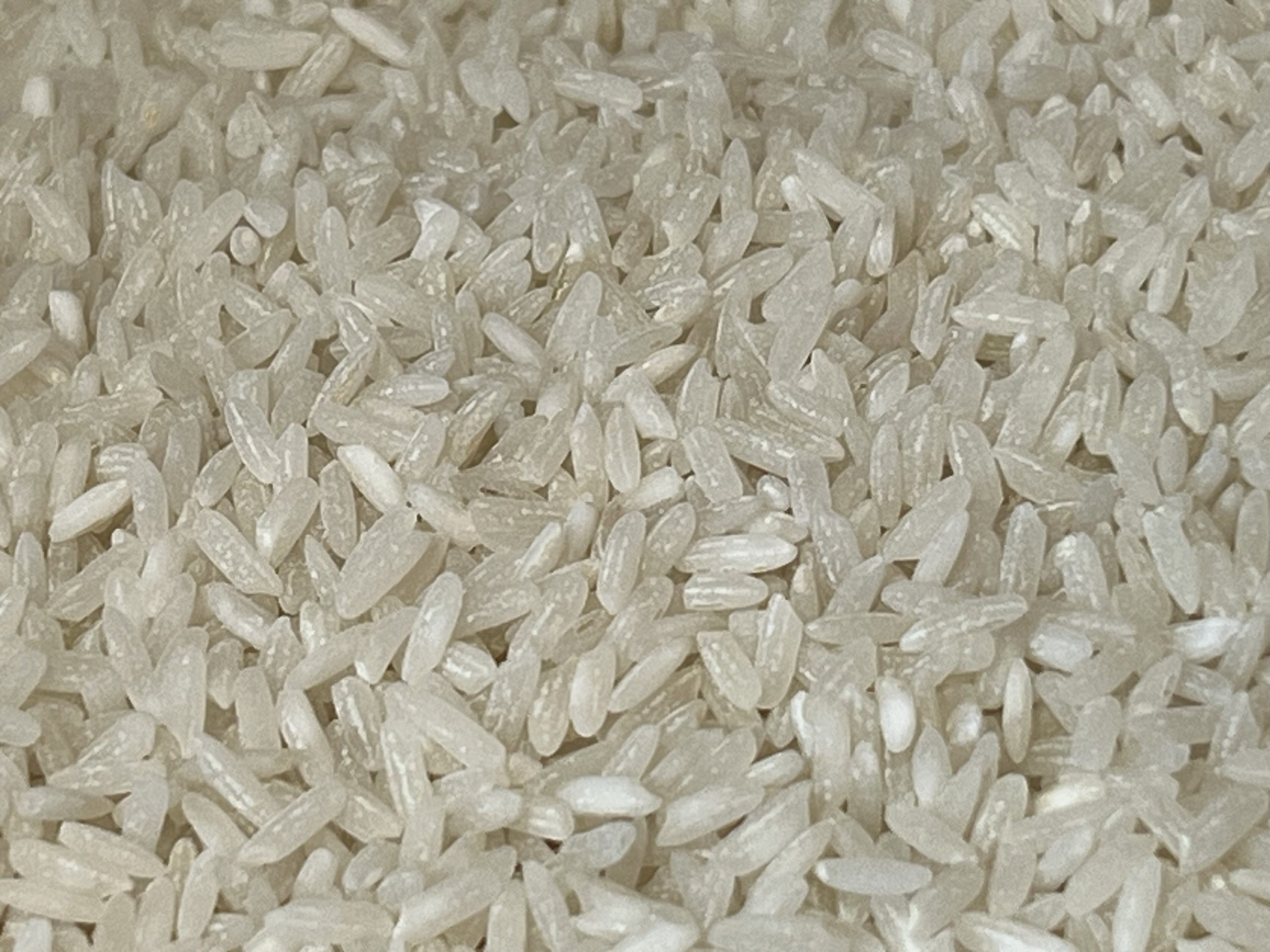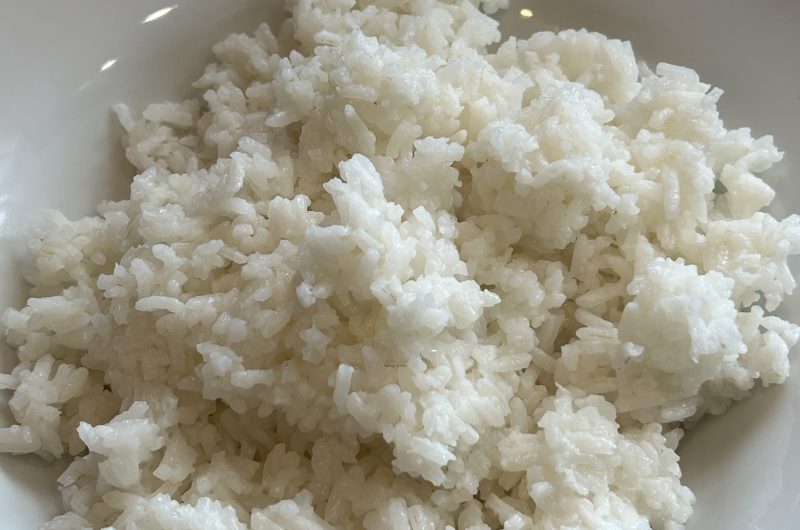How to make rice: everything you need to know here on how to cook up some tasty white rice. I’ll update this periodically with other kinds as I make them. This specific article is going over how to cook long grain white rice. Don’t confuse that with Jasmine rice – they are slightly different.
This makes a great side for a bunch of different meals. Whether that’s mock duck, sesame chicken, or meals from other cultures like a burrito, this recipe should set you up with some fluffy, tasty carbs.
Click to skip to notecard version
I’ll be using this from Sam’s Club:

Here’s everything you’ll need to learn how to make rice:
| What It is | Name | Where to Buy |
| Cookware | Medium saucepan with lid | Amazon |
| Cookware | Wooden mixing spoon | Amazon |
| Cookware | Pyrex measuring cup | Amazon |
| Cookware | Mesh strainer | Amazon |
| Cookware | Measuring cup for solids (1 cup) | Amazon |
| Ingredient | 1 cup of white rice | Store |
| Ingredient | 1.5 cups of water | Sink |
| Optional ingredient | Salt to taste | Store |
| Optional ingredient | Lime juice | Store |
Let’s get this started. For step one, you need to get your hands on some rice, I feel like that goes without saying.
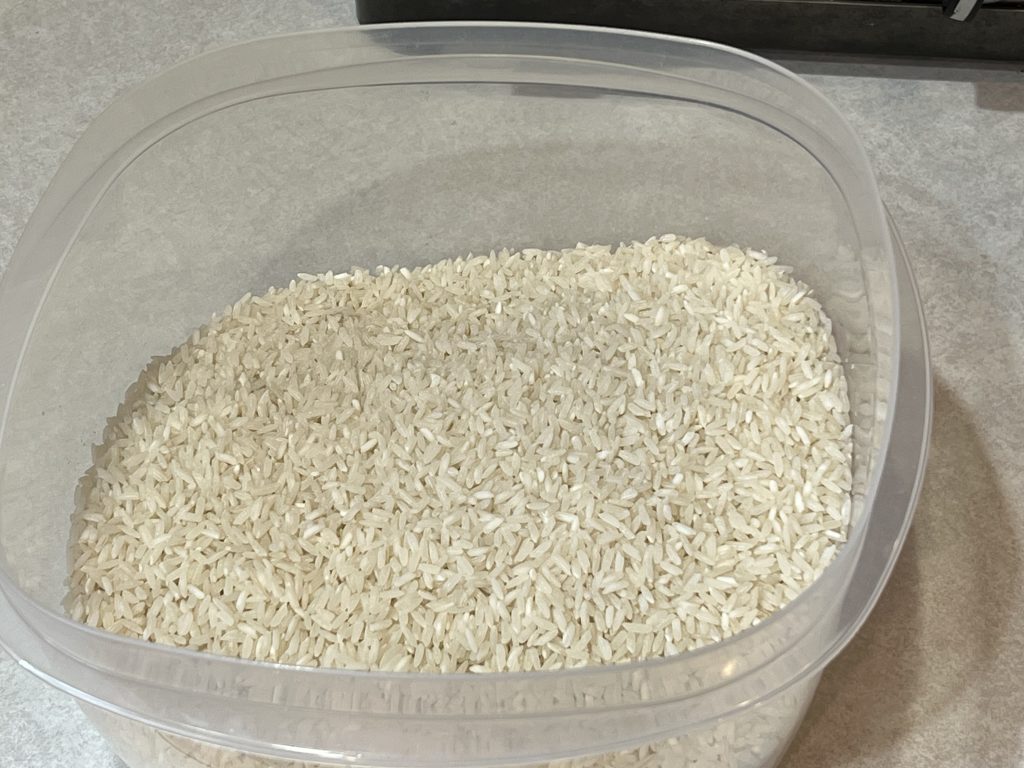
Next, measure out 1 cup of that rice with your measuring cup.
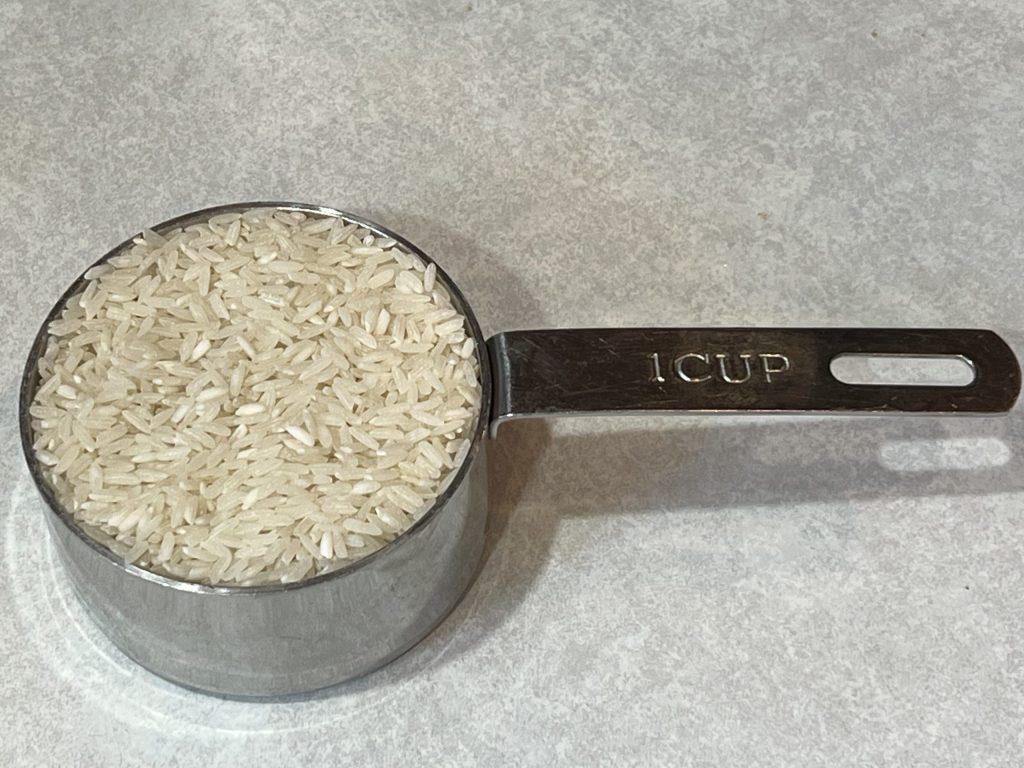
Following that, grab a mesh strainer. It’s best practice to wash certain types of rice before cooking it.
Washing it before cooking is a common practice in many cultures, and it serves several purposes that can enhance the quality of the final product. Here are a few reasons why washing rice is recommended:
- Removing excess starch: The grains contain starch on their surface, and rinsing them helps remove some of this starch. When you cooking it unwashed, the excess starch can cause the grains to stick together and result in a sticky or clumpy texture. Washing the it helps prevent this and ensures separate, fluffy grains.
- Removing impurities: Rice can sometimes contain dust, debris, or other impurities that you may want to remove before cooking. Washing the rice under running water helps eliminate any such impurities, ensuring cleaner rice.
- Reducing surface talc or additives: Some brands may have a powdery substance or added talc on the surface to prevent sticking. Washing helps remove these additives, providing a more natural and authentic taste.
- Improving taste and aroma: Washing can contribute to improving the overall taste and aroma once it’s cooked. By removing excess starch and impurities, you allow the natural flavors to come through, resulting in a more delicious final dish.
While washing rice is generally recommended, there are a few exceptions. Certain types, such as basmati or jasmine rice, are often prized for their fragrant qualities, and some people prefer to skip washing to preserve the aroma. Additionally, if you are using pre-washed or parboiled rice, washing may not be necessary as these varieties have undergone processing that removes the need for rinsing.
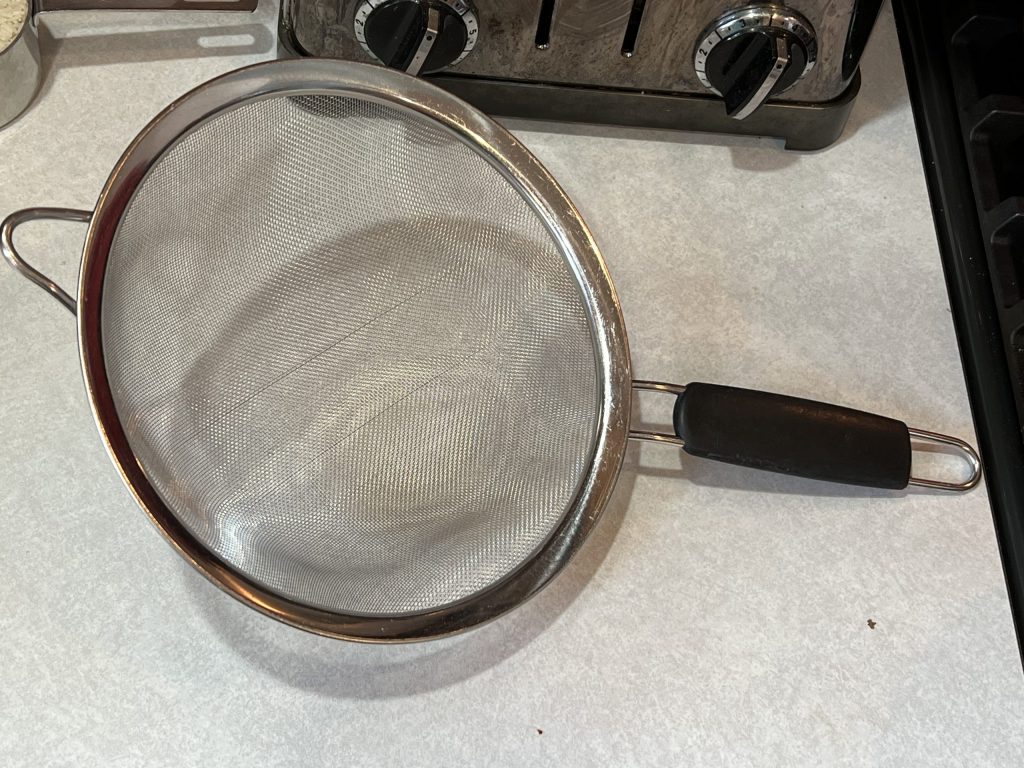
Once you have the strainer, pour the cup you just measured out into it.
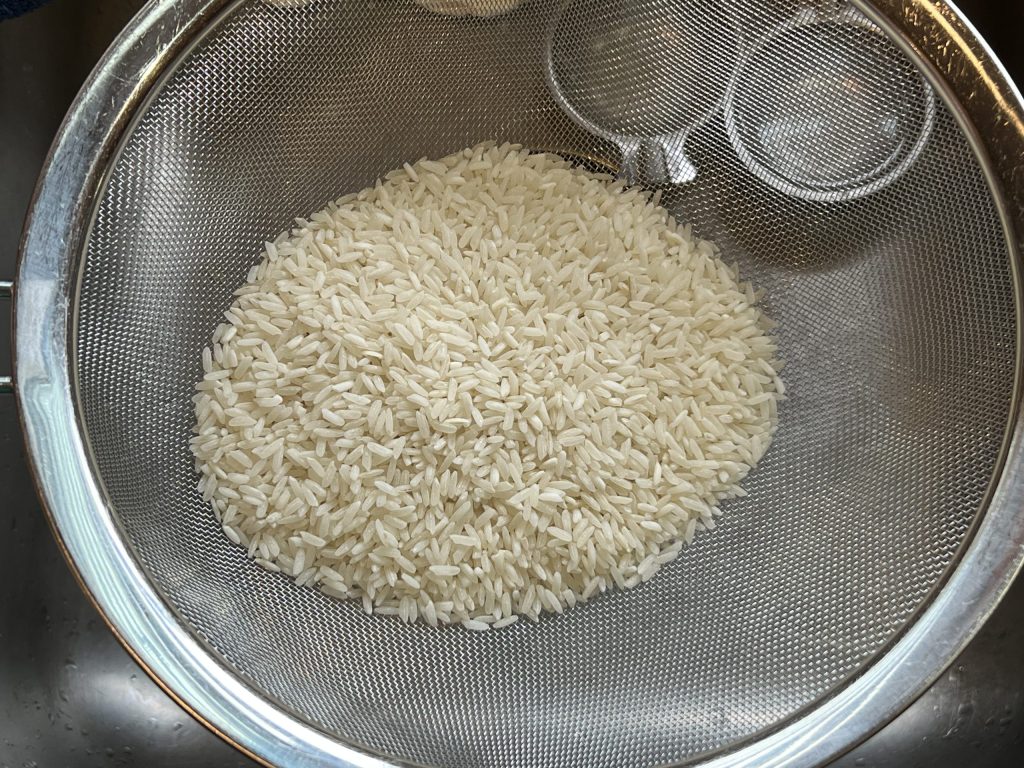
Then, proceed to running water through it get all the grains washed.
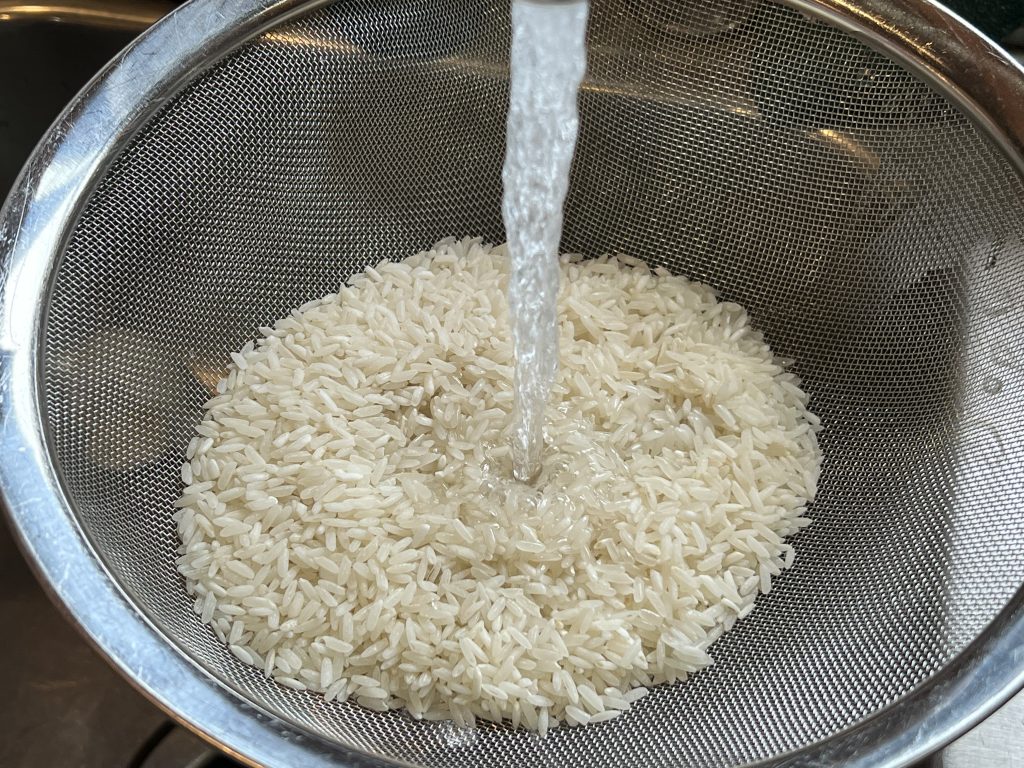
Once that’s taken care of, pour the rice into your saucepan on the stove and get the measuring cup.
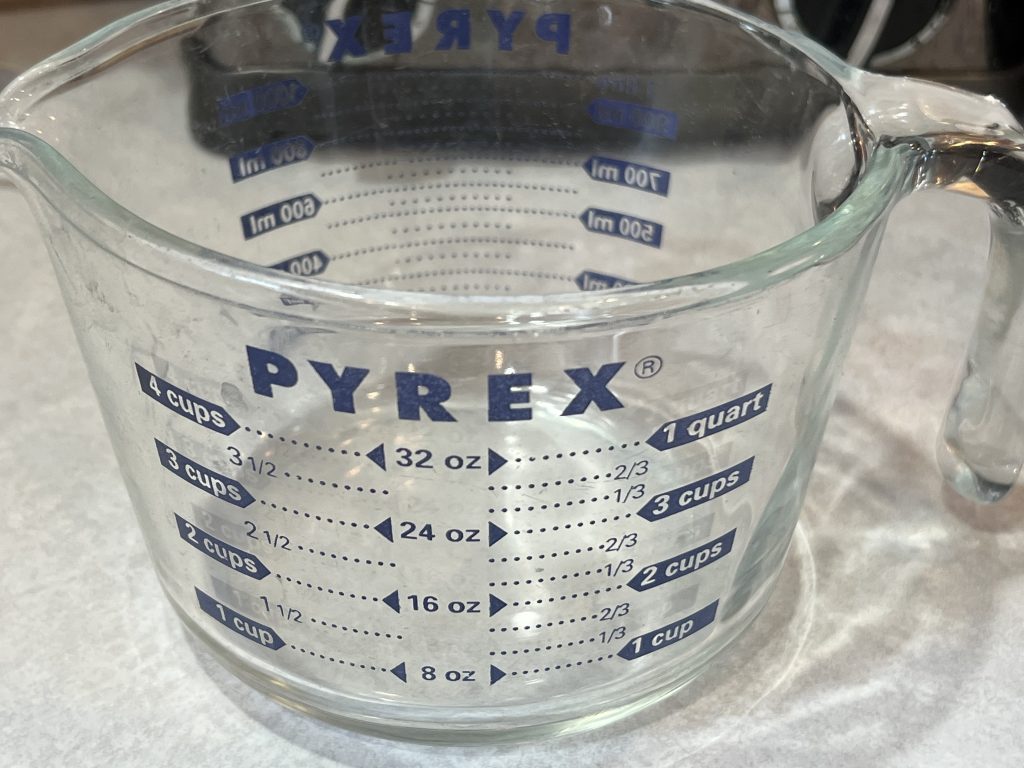
Fill that with 1.5 cups of water
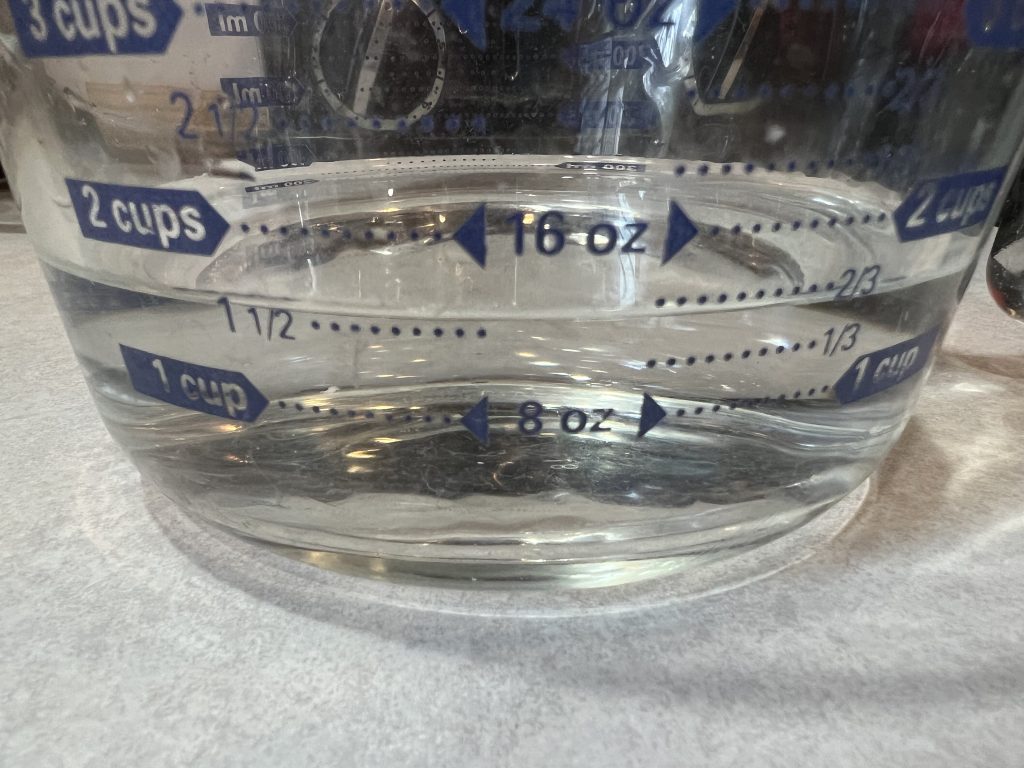
Pour that water into the saucepan with the rice.
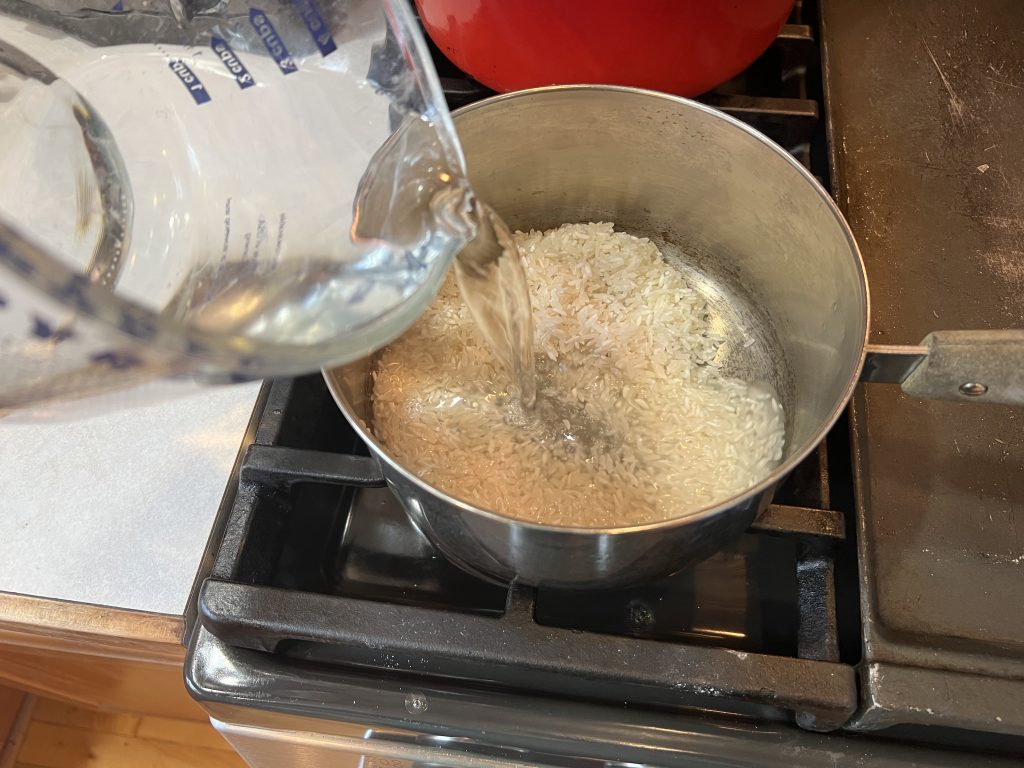
Turn the burner on high.
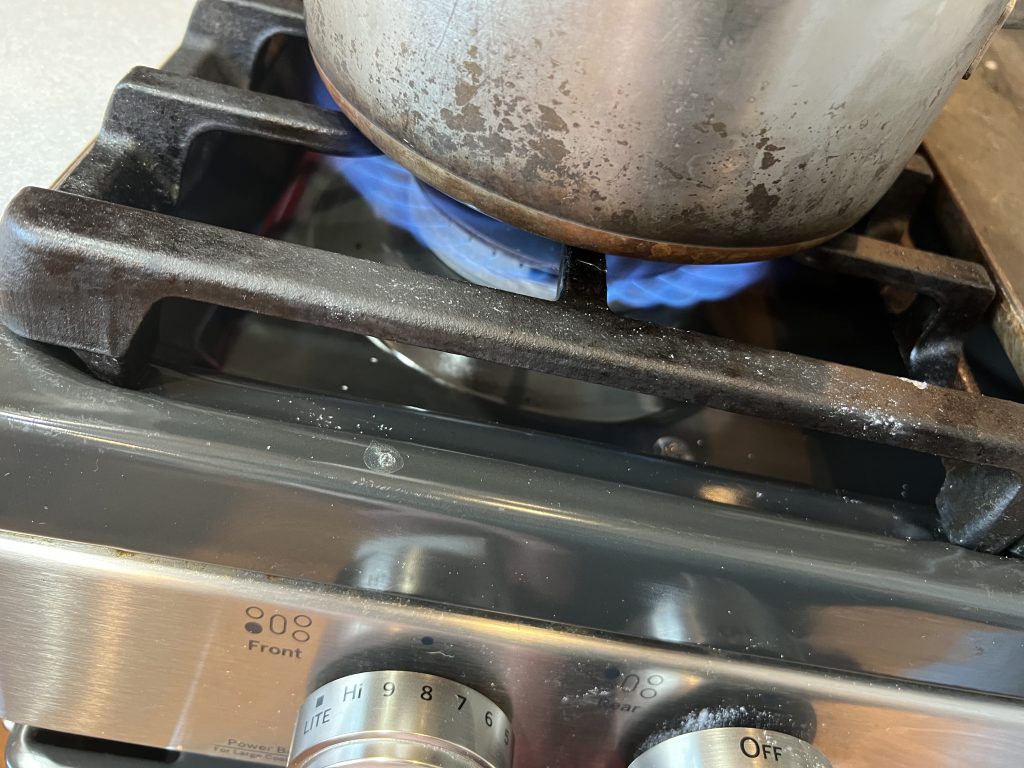
Wait until the rice is boiling.
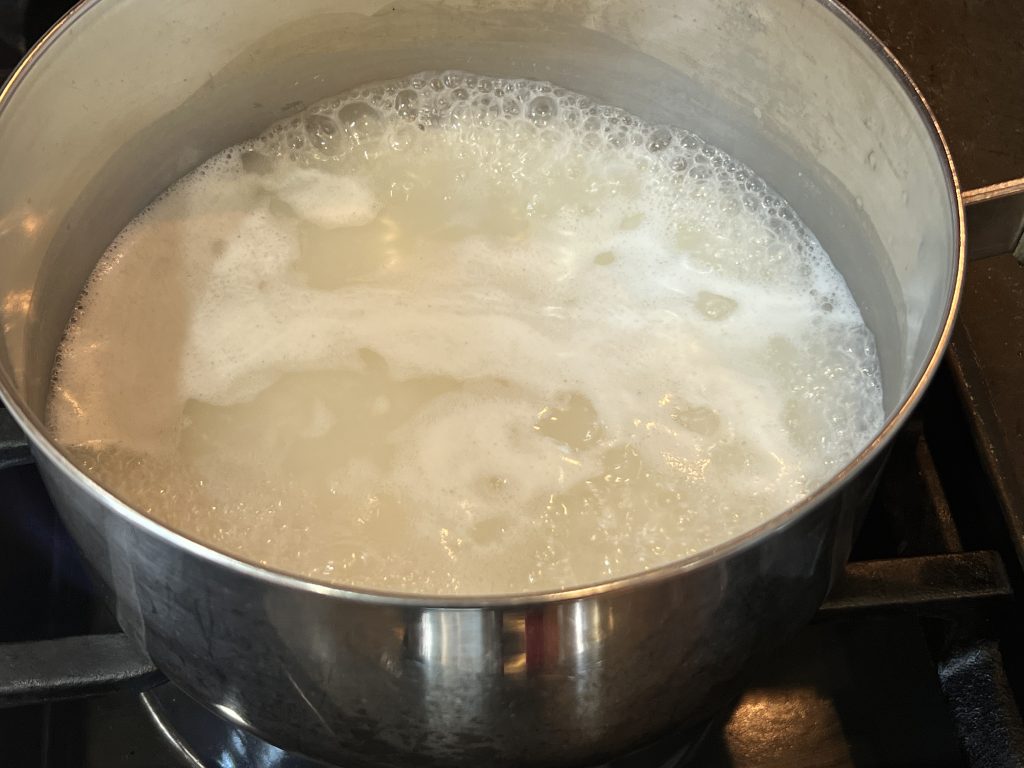
Then, reduce the heat on the stove to a simmer.
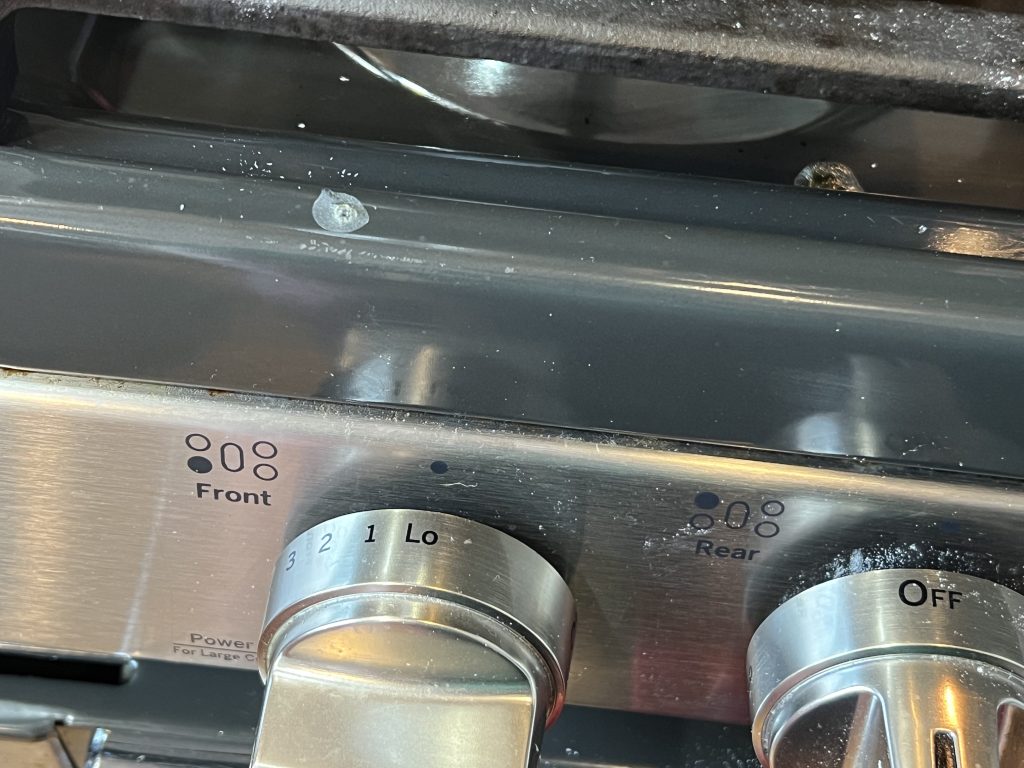
Set the timer on your stove for 18 minutes.
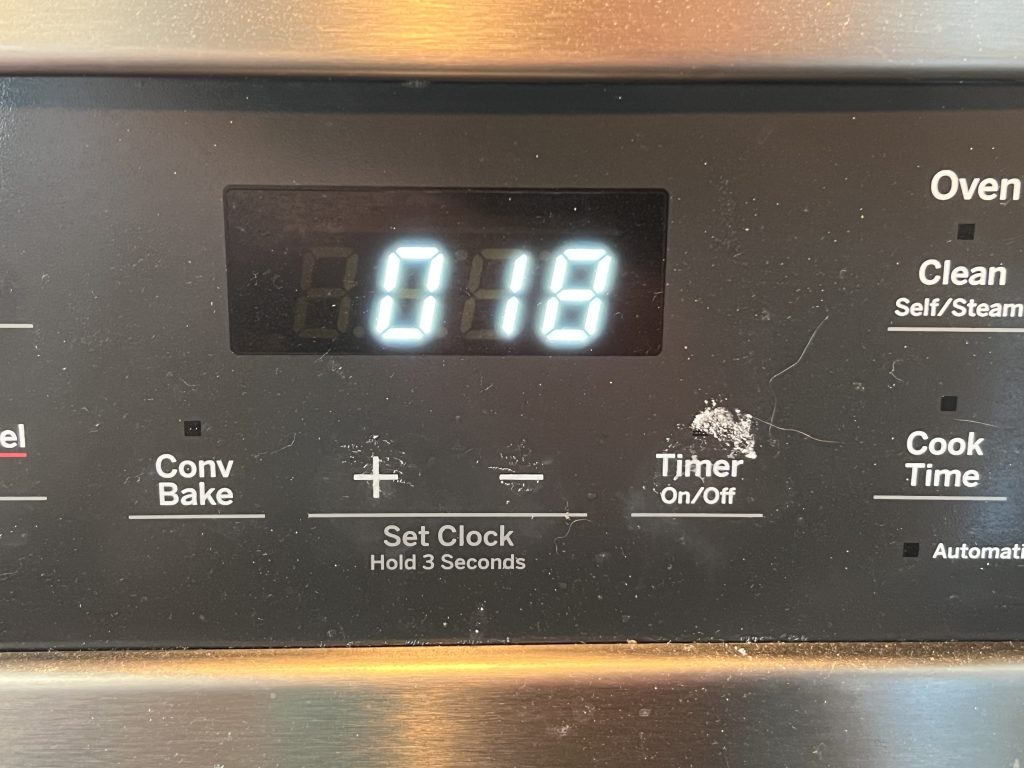
Some people say it should be left to simmer for 16 minutes, but I’ve noticed that only applies to Jasmine and maybe basmati.
Anyway, let that sit for a little while, covered up and simmering.
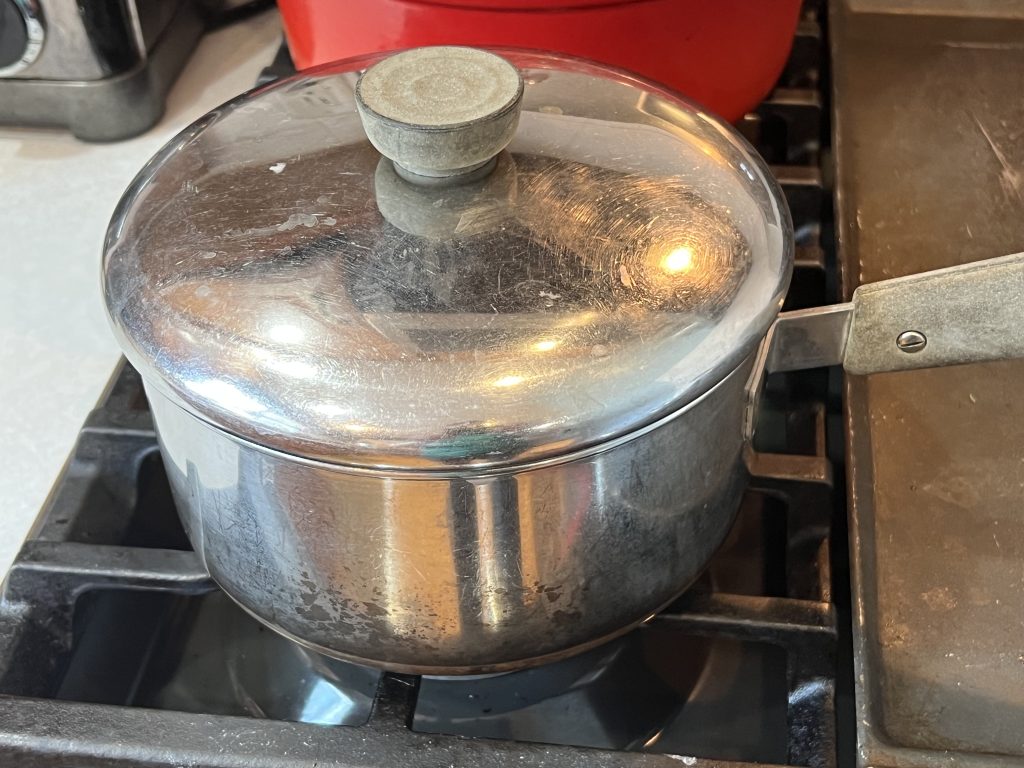
Once it’s done, grab a wooden spoon for stirring the rice.
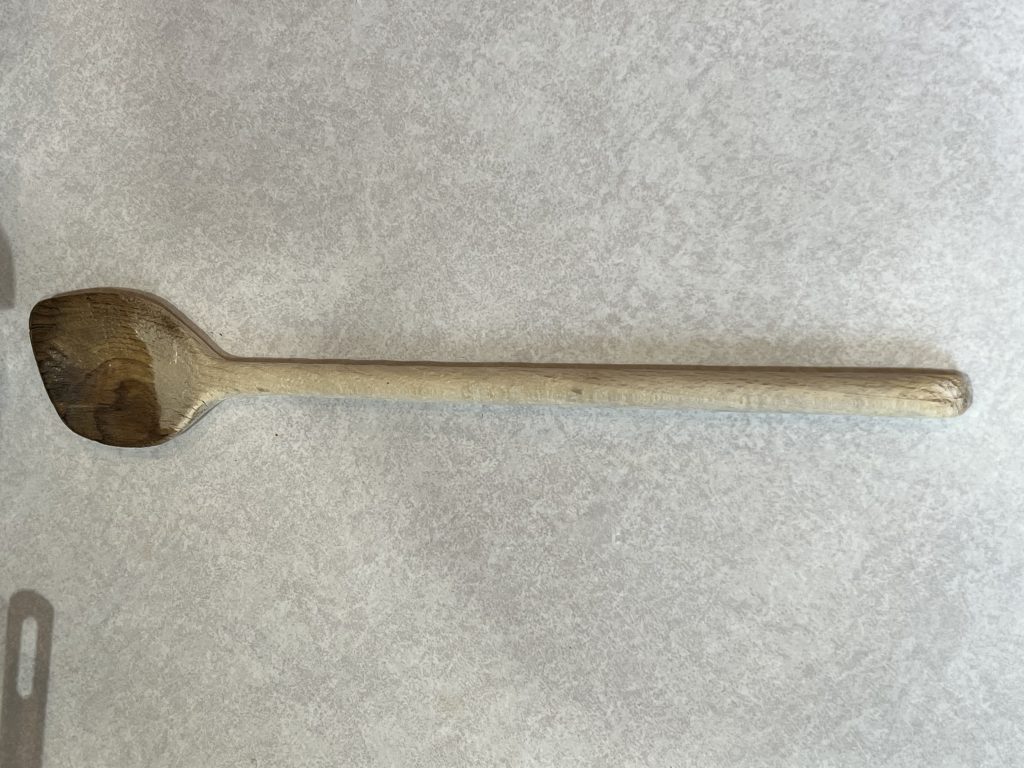
Open up the lid on your pan and stir it around. Add some salt to taste if you want to.
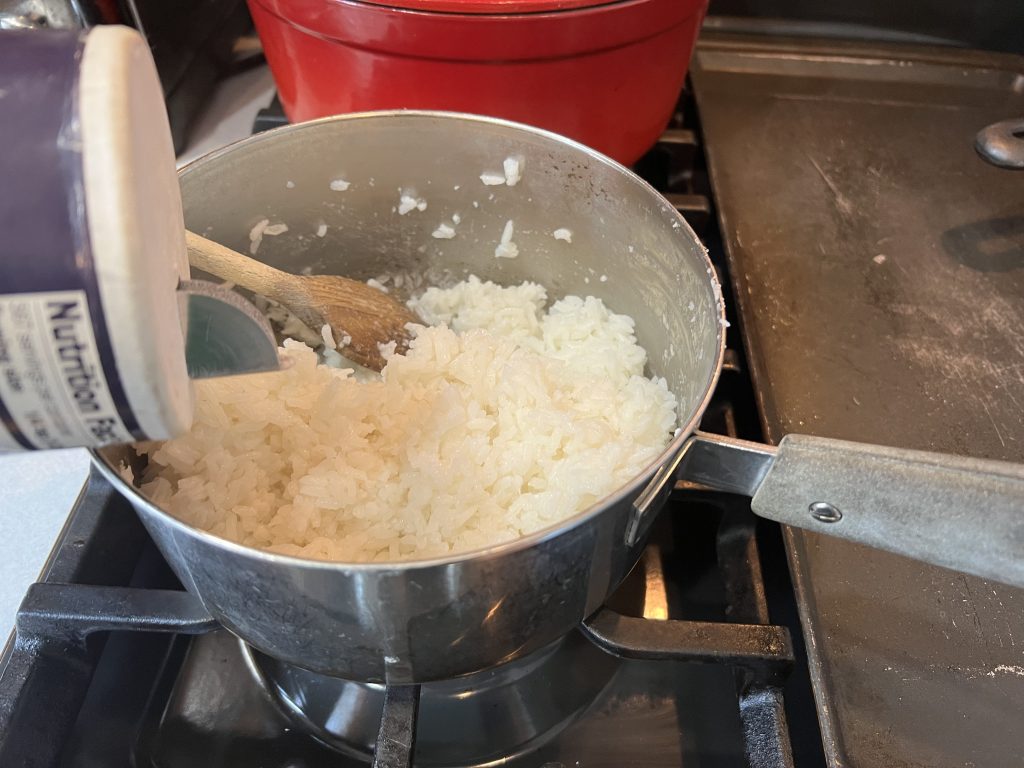
Once it’s ready to eat, grab a serving bowl and scoop some in there.
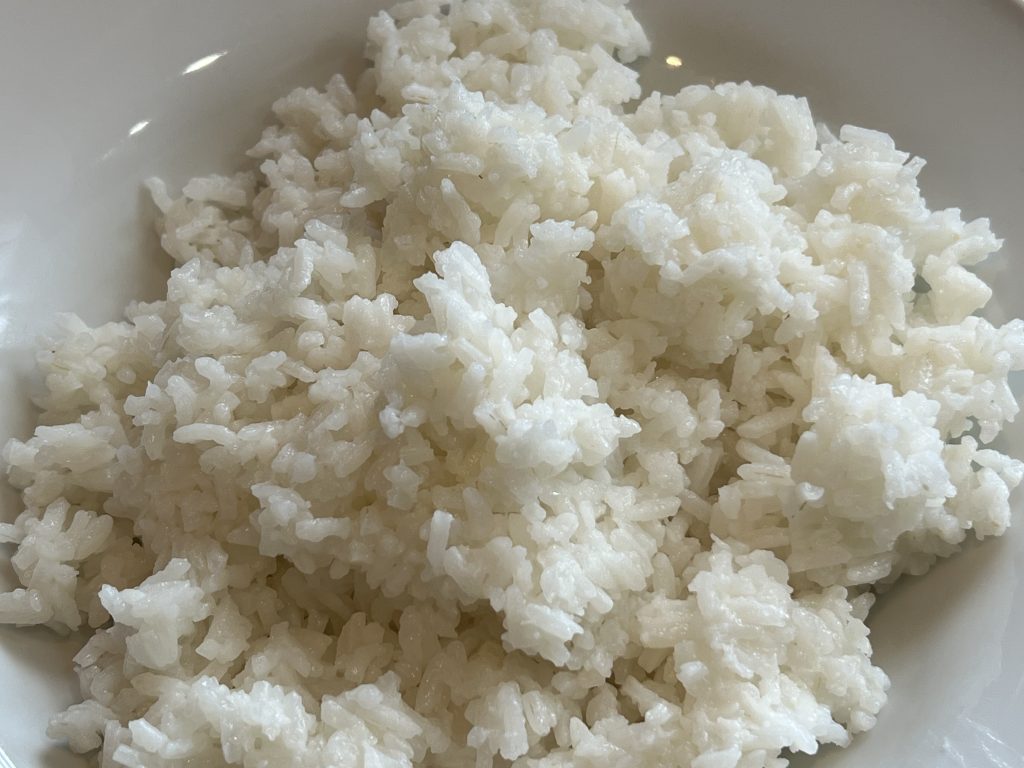
I also added some lime juice, that made it pretty good!
There you have it, how to make rice. It takes just about 25 minutes total with bringing the water to a boil and letting it simmer, then letting it cool a bit before eating. One last quick thing, when it comes to washing the pan, what I do is fill it with some water and let it soak in the sink for a little while.
An hour should be plenty to soften up the rice on the bottom of the pan. Then, pour the water out and use a metal spoon to scrape the rice off the bottom of the pan so you can toss it in the garbage. I usually use a bristle brush to take care of the rest and wash that down the drain.
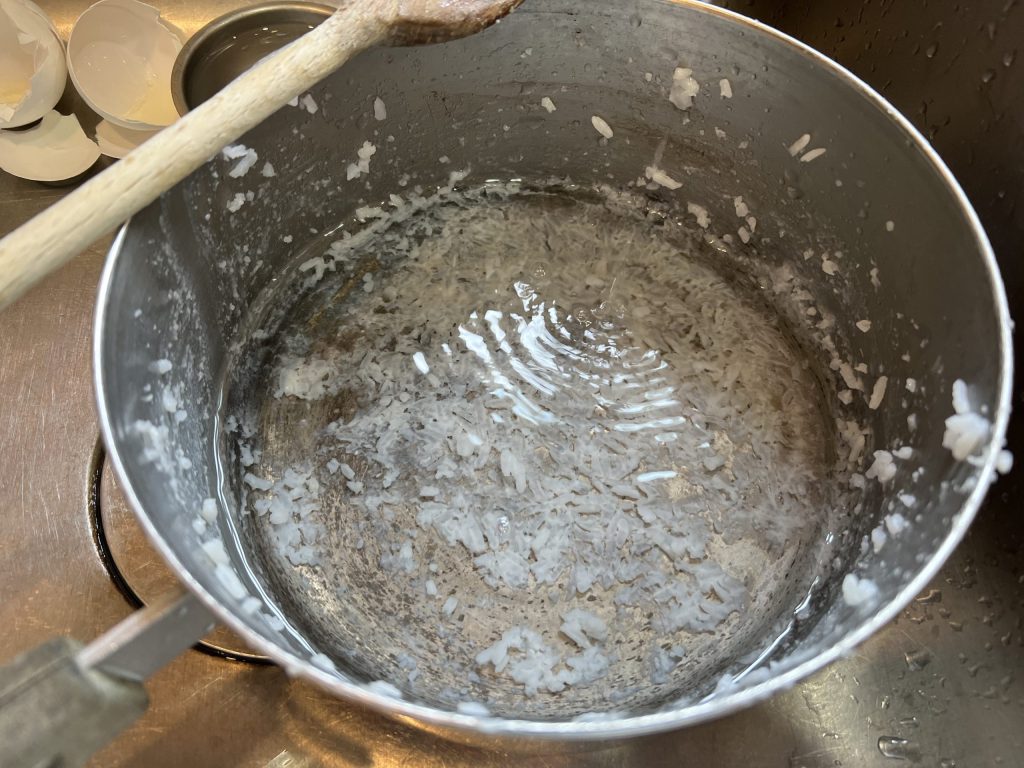
Notecard Version of How to Make Rice
How to Make Rice
Course: SidesDifficulty: Easy4
servings5
minutes20
minutes160
kcalIngredients
1 cup of long grain white rice
1.5 cups of water
Directions
- Measure 1 cup of rice and dump it into a mesh strainer
- Wash the rice and then dump it into a medium saucepan. Pour 1.5 cups of water into the saucepan along with the rice.
- Bring the water to a boiler, then lower the heat to a simmer. Cover the pan and set a timer for 18 minutes. Let the rice simmer, covered, for 18 minutes.
- When the time's up, stir it around with a spoon and add salt to taste.
Notes
- This specific rice is 160 calories per serving of 1/4 cup uncooked rice.
Did you use this to learn how to make rice? Leave a review and let other people know if there’s better ways to do it!
There are no reviews yet. Be the first one to write one.
